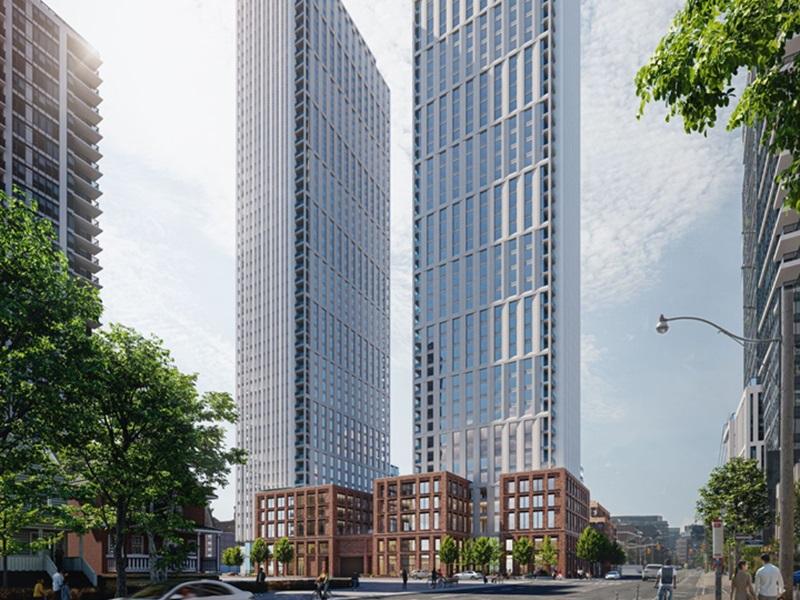I appreciated the opportunity to participate at the Vancouver Business Improvement Associations Partnership Economic Summit on May 23.
As part of an informed panel, I spoke about how small business priorities align with city and regional economic development strategies. As an urban planner, I’m interested in the linkages between land uses, transportation systems and business, economic and employment matters.
Introduction
When thinking about land-use planning, typically real estate comes to mind. The development of lands and construction of buildings provides new accommodations in which businesses can locate and expand.
This includes street-fronting shops for retailers, office buildings for businesses and employees, and industrial units for production and distribution activities. They serve local businesses and residents and other markets.
Although they may be modest, there are many of them, such that small businesses contribute mightily to the larger economy as do local businesses to the regional economy.
Planning and land connection
Properties accommodate a variety of functions and firms that serve the wider community.
That’s uniquely true for industrial lands, which contain various types of industrial uses - light to heavy, traditional to modern, and big to small. Similar statements could be said about commercial properties that accommodate office and retail tenants.
Municipal governments provide a range of services, many that directly impact businesses. Their jurisdiction includes investing in infrastructure, maintaining streets, planning land uses, processing development applications, issuing business licenses, setting budgets and general administration.
BIAs supplement city services and contribute to the vitality and success of business districts.
Change and transition
"Change is the only constant" – the overused cliché.
During the COVID-19 pandemic, change went from gradual to sudden, greatly affecting many businesses.
In-person retail increasingly moved to online sales. Distribution facilities for e-commerce were needed in urban locations close to customers. Restaurants became kitchens with takeout and delivery services. And office buildings emptied as employees worked from home.
In response, businesses adapted. How should city plans and programs adapt?
Planners and developers are exploring ways to use the Metro Vancouver region’s limited land base as effectively as possible, including for example through densification and intensification. These new buildings fit more floor space onto a given amount of land which can help house the growing workforce and economy.
There are municipal plans and regional strategies that designate lands for certain intended uses and higher densities, such as industrial for industry, and office jobs focused in urban centres.
Growth and development can be intentional and positive.
However, land use changes that don’t address possible unintended consequences can be a concern.
For example: introducing commercial uses into an industrial district or residential uses into a commercial district can destabilize the area. While redevelopment may accommodate new uses, the risk is losing pre-existing tenants.
Foreseeable issues include land use and traffic conflicts, increases in property values, surging rent and tax levels, land speculation and displacement of businesses.
For businesses to prosper, they need stability - boring but important. This stability can be provided in the forms of stable tenant accommodations, stable land-use plans, stable government policies and stable property tax bills.
Suggestions
A successful BIA entails programs that clearly fulfill its goals, ongoing strong support from all stakeholders and a membership that feels the association is addressing their concerns.
What can municipalities do to foster local businesses? Some suggestions:
- Protect lands for intended uses and avoid introducing land use conflicts.
- Ensure property tax policies and rates for tenants are stable and predictable.
- Ensure that the permitting process for businesses is simple, clear, and timely.
- Ensure that city initiatives, such as plans and policies, as well as services, infrastructure works and transportation investments, are informed by the needs of the local community.
- Support additional housing supply in appropriate locations for the workforce.
- Further share data and information.
- Enhance services that address crime, safety, and social issues.
- Generally create a positive business climate.
A BIA can support success through coordination and communication amongst its members, and partnership and advocacy with the municipality.
Eric Aderneck, RPP, MPL, BCOM, DULE has two decades of diverse experience including working for the public and private sectors in the Metro Vancouver region through several different capacities including planning policy, real estate development, consultant, and instructor. His expertise is in industrial and employment land use planning and associated matters. He can be reached at eric@aderneck.ca or https://www.linkedin.com/in/ericaderneck.










